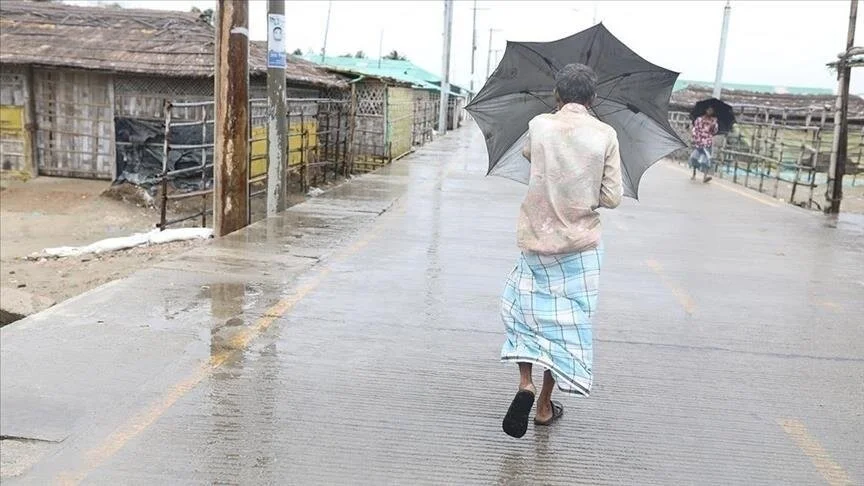

By Anadolu Agency
GENEVA
It was a “nightmare scenario” when Cyclone Mocha hit such “vulnerable, already distraught areas” in Rakhine State, affecting an estimated 5.4 million people in its path, the UN humanitarian coordinator in Myanmar said on Tuesday.
Speaking at a UN press briefing via video link from Myanmar, Ramanathan Balakrishnan said the cyclone struck Rakhine State with “brutal force” on Sunday.
“It had been a truly terrifying experience for those in the path of the cyclone, who were now facing a massive cleanup and reconstruction effort,” Balakrishnan said, adding that 5.4 million people are estimated to have been in the path of the cyclone, with 3.9 million of those considered most vulnerable.
After hitting the coast, he explained, the storm moved inward, causing flooding in areas where millions of people had already been displaced by conflict.
According to him, as many as 17 million people in Myanmar are in need of humanitarian assistance, which is “as many as in Ukraine.”
Olga Sarrado of the UN refugee agency, for her part, described the situation in Bangladesh and the severely affected Rohingya refugee camps.
Over 21,000 Rohingya and more than 4,000 households had been affected in the camps, Sarrado said, adding that no casualties had been reported.
The cyclone hit at a particularly difficult time for Rohingya refugees in Bangladesh, she said.
According to post-disaster assessments of humanitarian workers, the top needs were shelter, clean drinking water, sanitation, and medical supplies, she said.
Sarrado noted that only 16% of the funding appeal was funded currently.
On Sunday, Cyclone Mocha ripped through the coast between Cox’s Bazar in Bangladesh and Kyaukpyu township in Myanmar, reportedly killing at least nine people in both countries.
We use cookies on our website to give you a better experience, improve performance, and for analytics. For more information, please see our Cookie Policy By clicking “Accept” you agree to our use of cookies.
Read More